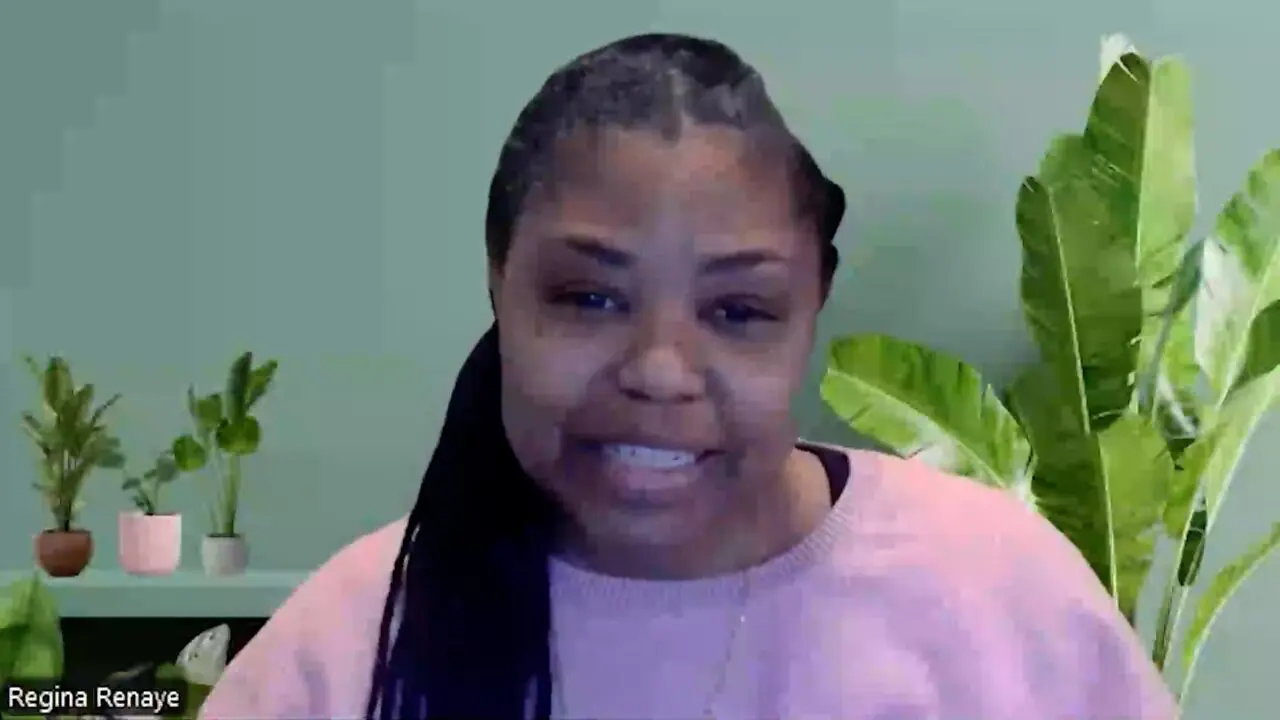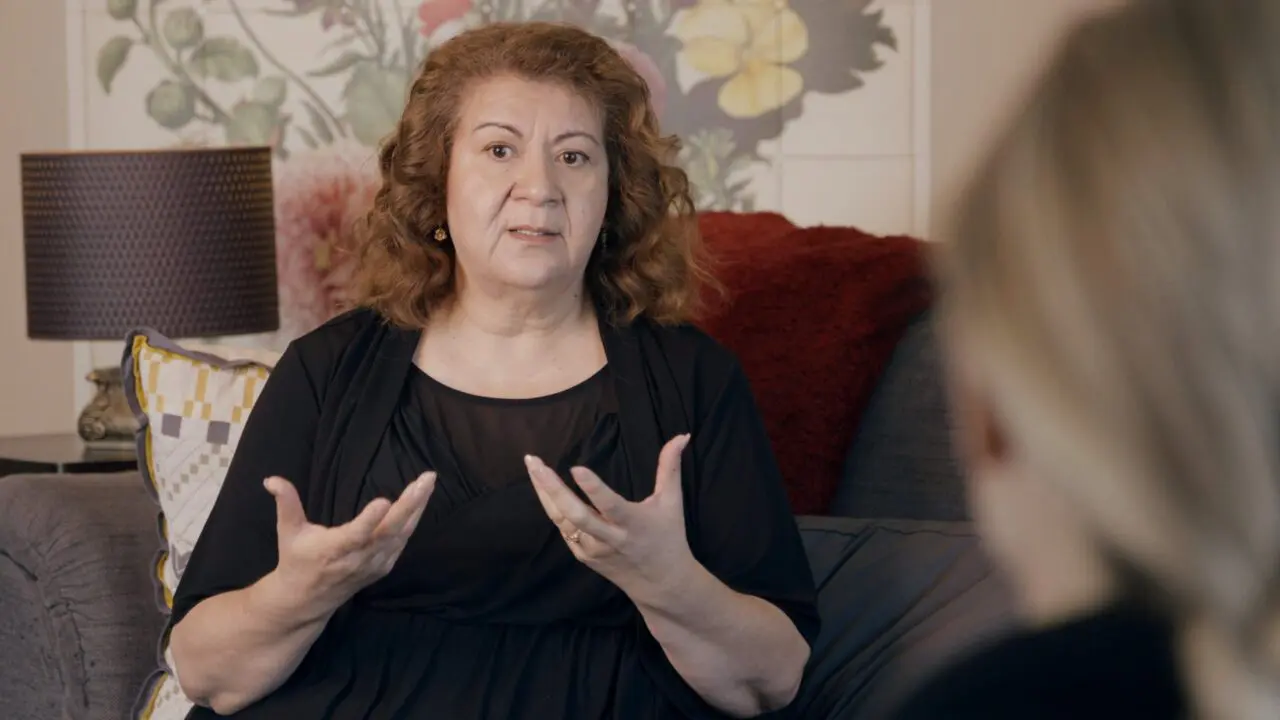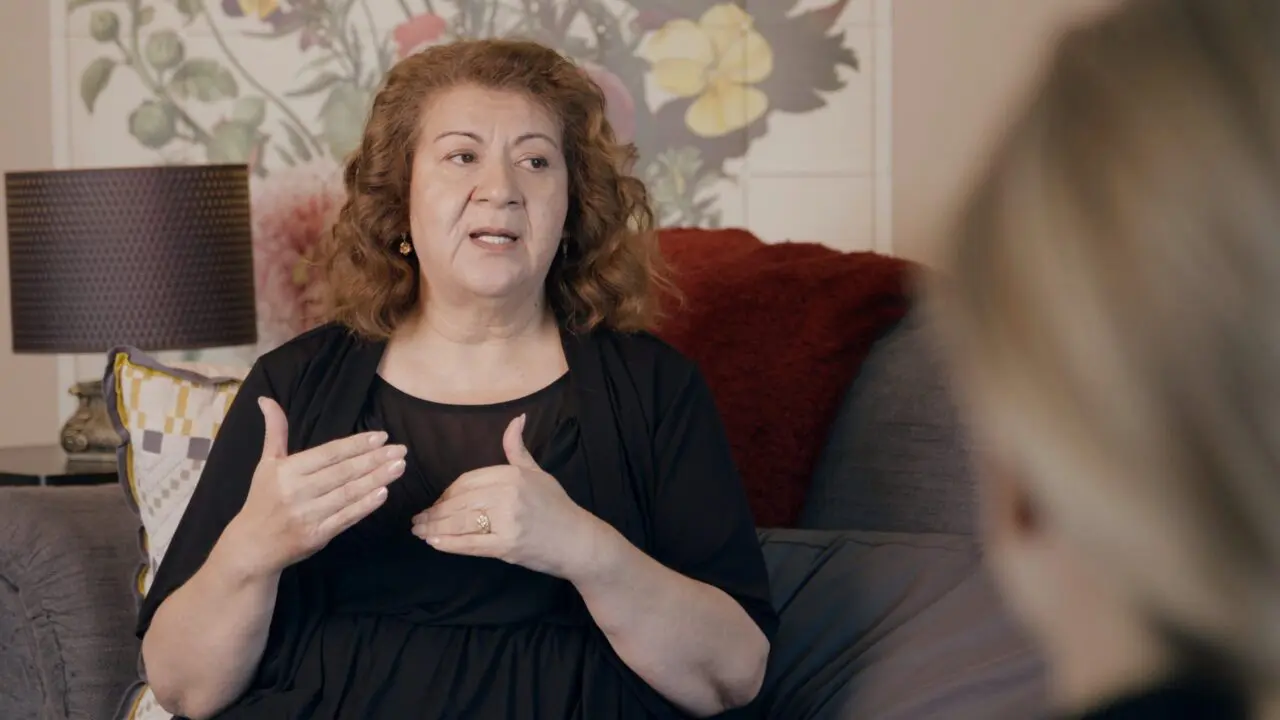Radical Acceptance
Radical Acceptance is fully acknowledging the facts of your life, including the parts you hate, in order to reduce your emotional suffering.
Stories

"I'd spend hours analyzing their behavior making excuses for their mistreatment... Slowly, I stopped fighting reality. While I deeply loved this family member, I couldn't force them to treat me with the same love and respect I showed them."

As soon as I would wake up, the first thought was wanting to drink.

I'm a parent now, I've got to accept the reality of it...I've got responsibilities.
I was in a relationship with someone who really did not treat me with a lot of respect. For a long, long time, I really didn't want to accept this ‑ for a lot of reasons. It was uncomfortable for me.
Community Tips
Radical acceptance isn’t about giving up. It’s about acknowledging what you can’t change and, instead of dwelling on how uncomfortable or difficult things feel, you recognize and accept that you're upset, and meet yourself where you are, with compassion and purpose.
This skill will change your life, but don’t think it will happen all at once. Be gentle and do what you can do.
I lost my son 20 years ago. On his birthday every year, I feel a lot of grief. Sometimes I can easily fall into darkness trying to figure out why it happened and going through all the scenarios of how I could have stopped it. This is when Radical Acceptance is most helpful for me.
I do Radical Acceptance for 3 minutes at a time.
I’ve found that Radical Acceptance along with Dialectics and Mindfulness of Current Emotion have totally changed my life. Each can be overwhelming if you try to push it too hard all at once.
If you are going to do this about something big like rape or childhood abuse, I would get support ahead of time. Ideally it is done with a therapist.
Radical means complete and total acceptance. Don’t let the name turn you off. It’s not about being harsh or hardcore.
Shame is so painful ‑ but I can’t change what I’ve done while drinking (like falling over at a wedding all the way to physically and emotionally harming others). Radical Acceptance has been a long road, but it has helped me out of constant self‑loathing.
At first when I tried to do it, to say ‘He doesn't want to get back together with you. You are broken up’ it felt soooo scary. Like I was free falling out of the sky. I tried to be curious about that feeling. I could only do it for 30 seconds at a time at first.
Tara Brach’s Radical Acceptance book is good, but it is also overwhelming. I picked it up one day and started reading about two‑thirds in. That was good.
Why Use this Skill
Fighting against reality causes a lot of pain. If you deny or ignore the facts of who you are, what you’ve been through, or what your world is like, it makes things harder. It makes it harder for you to change things you don’t like. It also makes it harder to grieve, move on, and grow stronger. Radical Acceptance helps you get power back in a world that can feel really unfair.
When to Use This Skill
Use Radical Acceptance when:
- You hate something about your life, your world, or your experience.
- You’ve been through trauma or experienced great loss.
- You can’t problem-solve something that’s causing you pain.

Overview Video
DianaHow to Use This Skill
For some people, it can help to think of Radical Acceptance as Radical Acknowledgement. Accepting, or acknowledging, something radically means to accept it fully with body, mind, and soul.
Accepting reality does not mean approving of it, being okay with how things are, or giving up. It means recognizing facts as facts, and facing reality for what it is.
To radically accept, try to:
- Simply state the facts.
- Remind yourself that something really did happen, or that reality really is a certain way.
- “That trauma happened to me.” “This person died.” “My body looks this way.” “I live in this place.” “That person raised me.” “I have chronic illness.”
- Challenge or let go of thoughts about how things “should” or “shouldn’t” be, or how things are “fair” or “unfair.”
- Keep in mind: facts can include that you don’t like something or that you wish things were different! Self-validate.
- “My body looks this way, and I want to feel okay about it, but it really disgusts me right now.”
- Remind yourself that something really did happen, or that reality really is a certain way.
- Feel grief.
- When you lose something/someone you love, when you don’t or can’t get something you want, or when life didn’t turn out the way you wished it would—these are all losses. Grief makes sense.
- Let yourself cry. Let your body move how it wants to move. Let yourself feel any grief you feel through mindfulness of current emotion techniques.
- Journal, draw, paint, dance, or express how you’re feeling through art.
- Use your body.
- Show acceptance through your body language. Uncross your arms, place your hands open on your lap, or relax your facial muscles.
- Practice paced breathing.
- Engage in mindful movement.
- Commit to acceptance.
- “Turn your mind” toward acceptance, and choose to accept rather than deny reality.
- You might say to yourself, “He did that to me. I choose to accept it, rather than pretend it didn’t happen.”
- Acceptance of big things takes time. You may have to choose acceptance over and over.
- Be patient and gentle with yourself.
- Focus on accepting “small” things to start. Take breaks as much as you need to.
- Remind yourself that you’re doing your best. Remind yourself that acceptance is necessary for change. Remind yourself that life can be worth living, even when it’s painful.
- Use grounding skills, self-soothing, and other coping skills as needed.

Overview Video
UrsulaResources
RAIN: A Practice for Radical Compassion
Website with resources for practicing "RAIN" a tool for radical acceptance and compassion, by Tara Brach
The Dandelion Story
Video about "The Dandelion Story" about radical acceptance, from DBT‑RU's YouTube channel
How Dr. Linehan Found Radical Acceptance
YouTube video of interview with DBT's creator Dr. Marsha Linehan and how she found acceptance.
Guided Meditation for Acceptance of Pain
YouTube video with a guided meditation for the practice of Radical Acceptance for Pain, led by Tara Brach.
Accepting this Moment Exactly as it is in This Moment
Video describing Radical Acceptance DBT skill, by DBT‑RU YouTube channel
When Your Life is Not How You Want it to Be
Video describing Radical Acceptance from DBT, by DBT‑RU YouTube channel
Related Skills
Wise Mind
Find your inner wisdom.
Notice Glimmers
Find and appreciate positives.
Self‑Soothing
Nurture yourself with physical comfort and pleasure.
Emotions as Signals
Notice how emotions are helpful.